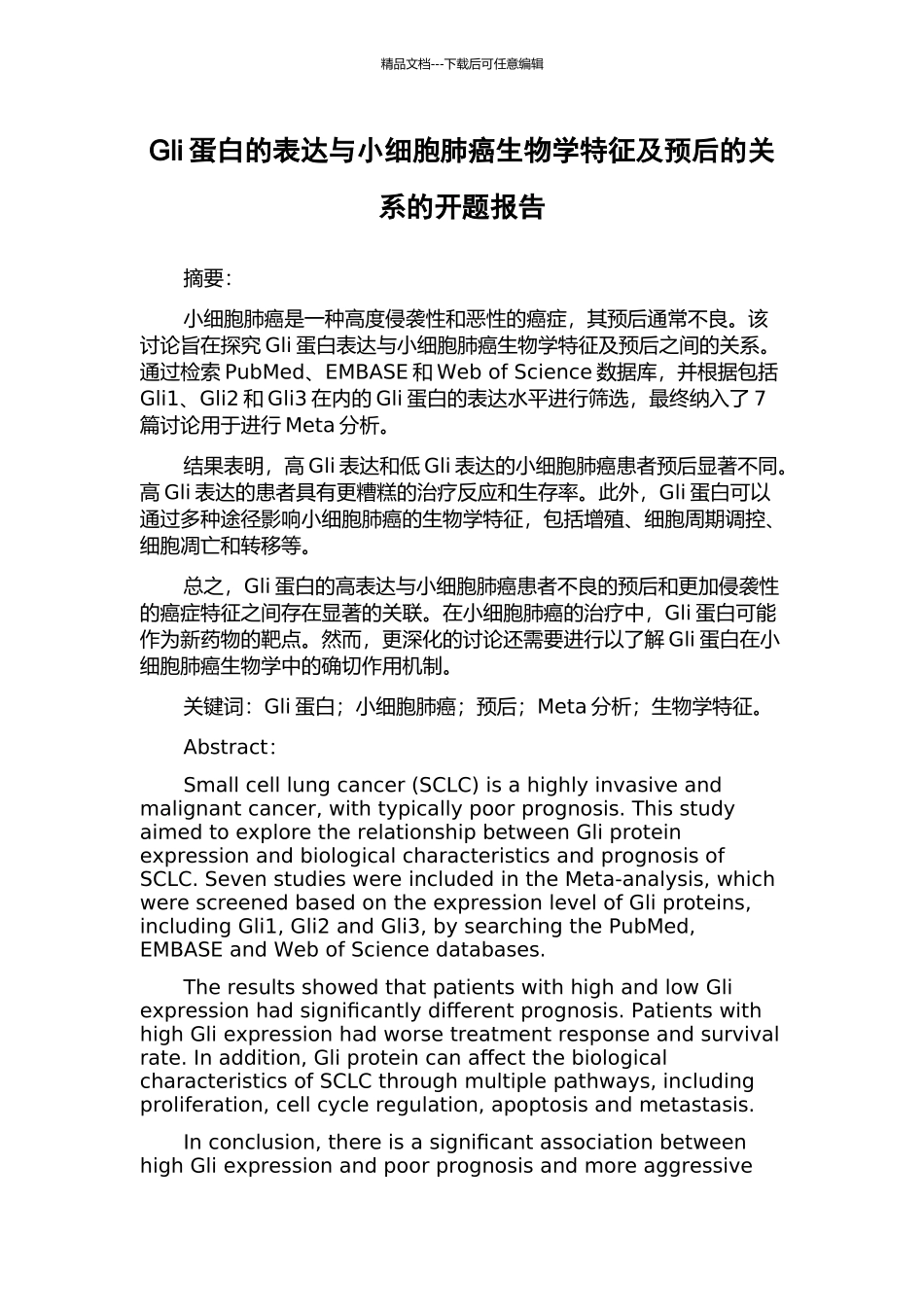精品文档---下载后可任意编辑Gli 蛋白的表达与小细胞肺癌生物学特征及预后的关系的开题报告摘要:小细胞肺癌是一种高度侵袭性和恶性的癌症,其预后通常不良。该讨论旨在探究 Gli 蛋白表达与小细胞肺癌生物学特征及预后之间的关系。通过检索 PubMed、EMBASE 和 Web of Science 数据库,并根据包括Gli1、Gli2 和 Gli3 在内的 Gli 蛋白的表达水平进行筛选,最终纳入了 7篇讨论用于进行 Meta 分析。结果表明,高 Gli 表达和低 Gli 表达的小细胞肺癌患者预后显著不同。高 Gli 表达的患者具有更糟糕的治疗反应和生存率。此外,Gli 蛋白可以通过多种途径影响小细胞肺癌的生物学特征,包括增殖、细胞周期调控、细胞凋亡和转移等。总之,Gli 蛋白的高表达与小细胞肺癌患者不良的预后和更加侵袭性的癌症特征之间存在显著的关联。在小细胞肺癌的治疗中,Gli 蛋白可能作为新药物的靶点。然而,更深化的讨论还需要进行以了解 Gli 蛋白在小细胞肺癌生物学中的确切作用机制。关键词:Gli 蛋白;小细胞肺癌;预后;Meta 分析;生物学特征。Abstract:Small cell lung cancer (SCLC) is a highly invasive and malignant cancer, with typically poor prognosis. This study aimed to explore the relationship between Gli protein expression and biological characteristics and prognosis of SCLC. Seven studies were included in the Meta-analysis, which were screened based on the expression level of Gli proteins, including Gli1, Gli2 and Gli3, by searching the PubMed, EMBASE and Web of Science databases.The results showed that patients with high and low Gli expression had significantly different prognosis. Patients with high Gli expression had worse treatment response and survival rate. In addition, Gli protein can affect the biological characteristics of SCLC through multiple pathways, including proliferation, cell cycle regulation, apoptosis and metastasis.In conclusion, there is a significant association between high Gli expression and poor prognosis and more aggressive 精品文档---下载后可任意编辑cancer characteristics in SCLC patients. Gli protein may be a target for new drugs in the treatment of SCLC. However, further research is needed to understand the exact mechanism of Gli protein in the biology of SCLC.Keywords: Gli protein; small cell lung cancer; prognosis; Meta-analysis; biological characteristics.

